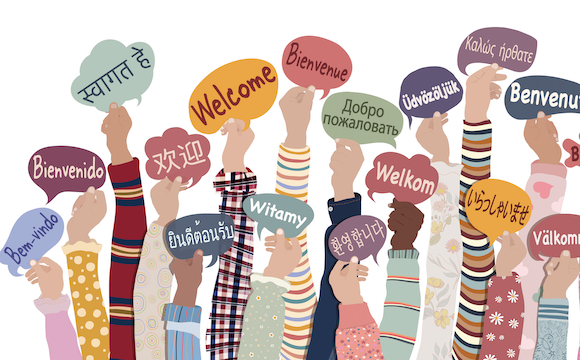Innovative. Engaging. Authentic. These are not terms you usually hear from primary school teachers, students and parents about learning another language. In fact, usually language learning isn’t paid much attention. When it is, it is often within policy debates arguing that the curriculum is too cluttered and crowded.
Yet, these terms characterise the feedback that classroom teachers have shared with researchers about a new approach to language learning and teaching called Teachers as Co-learners (TCL) in select Victorian Catholic primary schools.
In Victoria, all schools are required to provide a language program as Languages is one of the eight key learning areas of the F-10 Australian Curriculum. Nearly all (94.4%) of the language programs provided in Victorian government schools are taught as a separate subject. In primary schools, that often means one language class per week.
Teachers as Co-learners
Now fifty primary schools in the Catholic education sector are rewriting the script by adopting the TCL approach. Developed by the Melbourne Archdiocese Catholic Schools (MACS), TCL involves daily 15-minute language lessons, with all classroom teachers – supported by a language assistant who is fluent in the target language – as the facilitators of their school’s program.
Languages currently offered in the TCL program include Italian, French, Indonesian and Auslan (Australian sign language used by the majority of the Australian Deaf community).This approach aims to address well-known challenges in language education provision. Australia often reports chronic language teacher shortages, fluctuating student uptake and retention and perceptions that rapidly advancing translation technology and AI will replace language teaching and learning altogether.
This approach is also reimagining what engaging and inclusive language and literacy education could look like in Australia’s multicultural and multilingual primary schools.
Our research
We conducted a pilot study last year into the experiences and perspectives of classroom teachers, language assistants, curriculum and school leaders with TCL. Focus group conversations were conducted with 30 participants across four Catholic primary schools in Melbourne and Geelong. Our research highlights that TCL contributes to innovation across a range of areas:
- Co-learning
- Sustained and meaningful language practice
- Connecting learning areas across the curriculum
- Levelling the playing field for all learners
“We’re On It Together”: The Power of Co-learning
Participants described co-learning of their school’s target language as: fun, learning together, engaging in group work, confidence building, admitting uncertainty, ‘mistakes are okay’. One participant, who was new to their school and therefore new to TCL, reflected on their experience with co-leading the learning of a language:
Because I started this year, I said to the students: “I’m really nervous because I’ve never done this before”. So I came from a place of vulnerability and said: “I’m going to get lots of this wrong, can you please help me?”. And they have been nothing but supportive. As I learn along the way, I’ll ask questions and say something like: “I can remember that”, and I’ll tell them how I remember. So, we’re on it together.
Making Language Stick: Sustained and Meaningful Practice
Overall, participants agreed that TCL’s focus on teaching and learning functional language is effective in engaging students in language learning. Within TCL, students learn to make simple requests, ask for clarification and communicate a range of everyday topics in their target language.
This emphasis on functional language is supported by a whole-school approach that provides daily opportunities for language use in and beyond the classroom: “It’s about building student confidence and teacher confidence so that Italian speaking, it’s not just in that 15 minutes – we hear it throughout the school at different times”.
Most participants emphasised TCL’s potential in supporting students’ retention and fluency in an additional language: I’m actually really surprised at the amount of language they [the students] can understand, speak, and write, and spell.
Linking Up Learning: Building Bridges Across the Curriculum
Our research conversations showed that TCL provides opportunities for students to identify links between Italian study and other learning areas. Participants commented that students are making connections between English and Italian by identifying similarities and differences in grammar, phrasing, expression and idiom. Students are also recognising links between Italian and its historical and linguistic importance in Catholicism and Religious Education.
Levelling The Playing Field: Language Learning for Every Student
Several participants noted the collaborative and democratic basis of TCL pedagogy and curriculum. Learning a new language alongside peers and teachers empowered students who might be struggling in other areas by giving them a level playing field.
There were a few students that loved the idea of starting from scratch with everyone. It didn’t matter whether you were strong at literacy or strong at maths – it sort of levelled the playing field again. Students that may struggle in particular areas were able to “come back to the pack”, and everyone started from one position. Students who might battle in some other subjects find Italian as being one of their areas of strength.
Sustaining Effective TCL Implementation
While participants’ experiences with TCL were overall highly positive, they also highlighted several key considerations for the sustainability of the program. The main concern was the consistent scheduling and integration of TCL in the school day, as competing priorities in the classroom could affect the daily time-on-task for language learning: “There’s always stuff that we’re juggling – we’re doing some assessments and we need an hour timeslot, and sometimes it’s really challenging in our day to fit in what we need”.
Participants cited whole-school collaboration as another key factor in sustaining TCL. Maintaining a collaborative culture over time can be challenging: “From the start, we did a lot together as a whole staff. Then that has died off a bit, and we’ve had a lot of change in staff. It’s how you catch everyone up, but we’ve kind of lost that ‘doing it together’ as a staff”. This highlights the need of ongoing staff engagement in TCL to keep the momentum going.
Keeping it fresh
Program sustainability also requires continuous provision of ‘fresh’ program-specific curriculum and assessment resources: “If it [the curriculum loses a little bit of momentum because it becomes too recycled, then you can see it start to drift away”. Participants also emphasised the importance of adapting TCL resources to suit their school contexts and learners.
Participants noted the importance of a well-coordinated transition between primary and secondary schools to sustain learner progress and engagement. Students who have learnt an additional language through TCL would leave Year 6 with basic communicative ability, compared to the majority of secondary Year 7 students who would be complete beginner learners of the language. Teachers and school leaders consistently emphasised the need for an extension of the TCL program into secondary schools, so students can continue building on the strong language foundation they developed in their primary years.
How it’s done
The potential of TCL for supporting confident language learners through consistent, functional and meaningful language use appears to be attracting national and international interest. Governments and educational systems overseas are looking to the MACS example to inform their primary language curriculum design and achieve national targets in increasing numbers of bilingual speakers (for example, Welsh Language and Education (Wales) Bill). This attests to Australia’s unique language diversity and continuing history of leading innovation in multilingual language and literacy education.
For more information, visit the project page via Deakin University’s Centre for Research for Educational Impact (REDI).

Thu Ha Bui is a graduate researcher in education at Deakin University. She researches educational technology and English as an Additional Language education. Jack K. Bennett is a graduate researcher in education at Deakin University and researches how education policy intersects with pedagogical practice and student experience. Michiko Weinmann is an associate professor in education at Deakin University (Languages/TESOL) and researches multilingual education, curriculum inquiry and internationalisation-at-home. Sarah Ohi is a senior lecturer in language and literacies at Deakin University. She researches the power and privilege of language and literacies. Andrew Skourdoumbis is an associate professor in education at Deakin University and researches teacher effectiveness research, critical policy analysis, and education reform/s.






